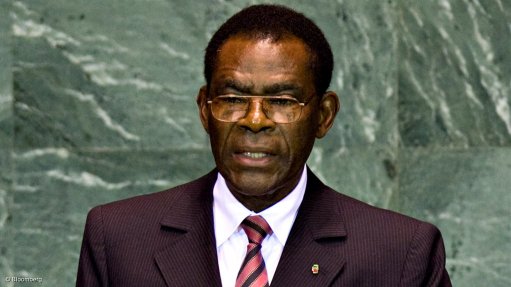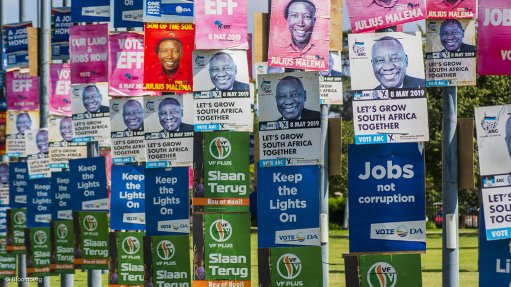South Africa urged to do more to develop its human capital base
It is important for countries, and especially South Africa, to revisit how they build their human capital base.
This was noted during a Human Sciences Research Council seminar series in collaboration with the World Bank, ‘Envisaging skilled futures for South African youth trade in Southern Africa’, which was held on Tuesday in various locations in the country via videoconferencing.
World Bank country director for South Africa, Namibia, Lesotho, Botswana, Swaziland, Zambia and Zimbabwe Paul Noumba Um said that while much progress had been made in the country since the start of democracy, there was insufficient effort to prepare the youth adequately for the labour market.
He pointed out that South Africa had made great strides in ensuring universal access to public education and health services, with government spending considerable amounts of money on these.
Nevertheless, human capital development in the country remained weak.
Countries that spend less on these services seem to be achieving better results in terms of the development of their human capital base, he noted.
Therefore, the issue was not a lack of investment in these services, but rather, the efficiency and effectiveness of public spending in South Africa.
“Despite progress in increasing the number of youth with education and access to health, there has not been a lot of progress in building a skills base where supply is able to meet demand,” stated Um.
He indicated that the youth in the country were not learning enough, or acquiring the relevant skills that the twenty-first-century market required, and that this was the challenge the country needed to address.
He emphasised that government and society as a whole needed to act to overcome the country’s human capital challenges.
This was reinforced by World Bank lead economist Aleksandra Posarac, who noted that 55% of the youth in South Africa were likely to be unemployed, and that coordination was required on multiple fronts to change that.
To look at the issue of human capital, last year, the World Bank implemented the Human Capital Index (HCI) project, which included data for 157 countries, with the objective to accelerate and enhance development in people globally.
The HCI quantifies the contribution of health and education to the productivity of the next generation of workers.
Posarac indicated that, as the world was changing rapidly, without proper skills development, very few people could expect to have good jobs, which directly reflected in the potential of a country to have high inclusive sustainable growth.
The HCI looks at health, school and survival, as these are the factors that define the capacity for productivity at jobs. The HCI calculates the human capital potential for future workers relative to what he or she could achieve, assuming they attend school consistently and are healthy.
South Africa scored 41%, meaning that a child in the country would likely only be 41% as productive as he or she could be under the circumstances. Posarac lamented that this was a low figure and lower than the country’s peers.
She emphasised the need to focus on regions that were the lowest performing to improve health and educations outcomes, as this would have the most impact on the overall level of human capital.
She too emphasised the need for consolidated engagement from the government, society, families and communities to improve human capital outcomes.
Rhodes University labour studies unit associate professor Mike Rogan highlighted that there was an unevenness in access to higher education and vocational training, and inequalities in race and schooling quality, with some of these disadvantages carrying over into the labour market.
He also noted strong differences across the components of post school education and training (PSET), as well as between different institutions.
Therefore, he noted an urgent need to improve the quality of data to monitor the outcomes of the “massification” of the PSET system.
Department of Higher Education and Training research, monitoring and evaluation director Dr Hersheela Narsee indicated that much needed to be done to promote a skilled South African youth.
She noted that, from the government’s side, the department was cognisant of the need to understand various elements of the labour market, such as which occupations were in demand currently and in the future, what skills gaps exist in the workforce, which occupations had shortages and who was unemployed, besides others.
The department was also analysing PSET systems to determine if they were flexible enough, provided a good balance between contact and distance learning, if the programmes offered were suited to the changing world and whether they responded to the needs of the economy and society.
She highlighted the need to strengthen enrolment planning processes for PSET, to improve career guidance and have evidence-based resources allocations.
Comments
Announcements
What's On
Subscribe to improve your user experience...
Option 1 (equivalent of R125 a month):
Receive a weekly copy of Creamer Media's Engineering News & Mining Weekly magazine
(print copy for those in South Africa and e-magazine for those outside of South Africa)
Receive daily email newsletters
Access to full search results
Access archive of magazine back copies
Access to Projects in Progress
Access to ONE Research Report of your choice in PDF format
Option 2 (equivalent of R375 a month):
All benefits from Option 1
PLUS
Access to Creamer Media's Research Channel Africa for ALL Research Reports, in PDF format, on various industrial and mining sectors
including Electricity; Water; Energy Transition; Hydrogen; Roads, Rail and Ports; Coal; Gold; Platinum; Battery Metals; etc.
Already a subscriber?
Forgotten your password?
Receive weekly copy of Creamer Media's Engineering News & Mining Weekly magazine (print copy for those in South Africa and e-magazine for those outside of South Africa)
➕
Recieve daily email newsletters
➕
Access to full search results
➕
Access archive of magazine back copies
➕
Access to Projects in Progress
➕
Access to ONE Research Report of your choice in PDF format
RESEARCH CHANNEL AFRICA
R4500 (equivalent of R375 a month)
SUBSCRIBEAll benefits from Option 1
➕
Access to Creamer Media's Research Channel Africa for ALL Research Reports on various industrial and mining sectors, in PDF format, including on:
Electricity
➕
Water
➕
Energy Transition
➕
Hydrogen
➕
Roads, Rail and Ports
➕
Coal
➕
Gold
➕
Platinum
➕
Battery Metals
➕
etc.
Receive all benefits from Option 1 or Option 2 delivered to numerous people at your company
➕
Multiple User names and Passwords for simultaneous log-ins
➕
Intranet integration access to all in your organisation


















